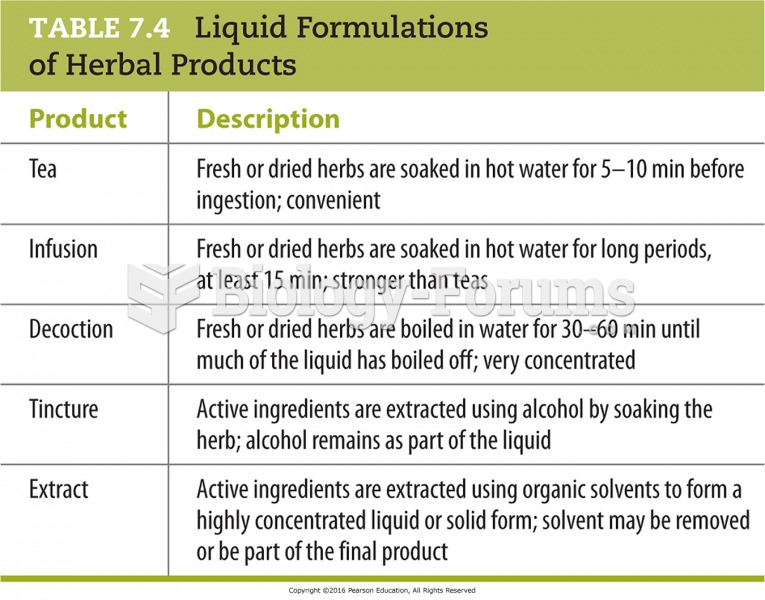|
|
|
If all the neurons in the human body were lined up, they would stretch more than 600 miles.
In most climates, 8 to 10 glasses of water per day is recommended for adults. The best indicator for adequate fluid intake is frequent, clear urination.
Walt Disney helped combat malaria by making an animated film in 1943 called The Winged Scourge. This short film starred the seven dwarfs and taught children that mosquitos transmit malaria, which is a very bad disease. It advocated the killing of mosquitos to stop the disease.
The most destructive flu epidemic of all times in recorded history occurred in 1918, with approximately 20 million deaths worldwide.
Children with strabismus (crossed eyes) can be treated. They are not able to outgrow this condition on their own, but with help, it can be more easily corrected at a younger age. It is important for infants to have eye examinations as early as possible in their development and then another at age 2 years.
 Burkholder and colleagues demonstrated that some strains of Pfiesteria shumwayae are toxic to fish a
Burkholder and colleagues demonstrated that some strains of Pfiesteria shumwayae are toxic to fish a
 Drug tolerance: A shift in the dose-response curve to the right as a result of exposure to the drug.
Drug tolerance: A shift in the dose-response curve to the right as a result of exposure to the drug.





